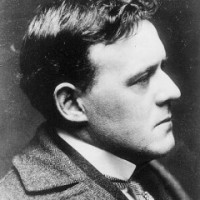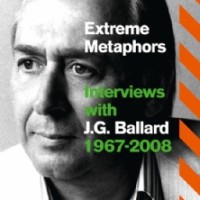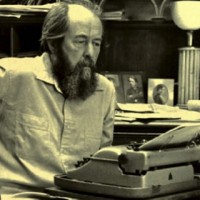Why Belloc Still Matters, by R.J. Stove
An author too robust and significant to be wholly un-personned can still be marginalized. Consider this elegant pasquinade, which years ago won a parody-contest award in Britain’s New Statesman and which employs the same rhyme scheme and meter as Hilaire Belloc’s own “The chief defect of Henry King”:
The chief defect of dear Hilaire Was not the clothes he used to wear, The curious hat and monstrous cloak, Paraded as some kind of joke. No, Hilaire’s fault, and well he knew it, Was, all he did, he’d overdo it… There’s more—he held the strongest views On politicians, and on Jews, Such as, today, might give one cause To think of Race Relations Laws. But that of Belloc is the worst That can be said. His comic verse, His Cautionary Tales, his Peers, His Beasts will last for countless years, Delighting readers old or young Who share Hilaire’s adopted tongue.
Well, that’s put Dear Hilaire back in his box, hasn’t it? If Belloc’s entire literary merit lies in his having catered to the A.A. Milne and Edward Lear demographic, we need no more bother ourselves with his wider aims than seek deep epistemological insight from re-reading about Pooh Bear or The Dong With The Luminous Nose. But then the New Statesman has never claimed theological expertise. Others, who do possess such claims, and who in many instances share Belloc’s Catholicism, have been at least as hostile. Malcolm Muggeridge complained, “although he has written about religion all his life, there seemed to be very little in him.” Six years before the Latin Mass’s recent anti-Belloc enfilade, St. Louis University’s James Hitchcock (in the May 1996 issue of Crisis) likened Belloc to “a man with a machine gun—by spraying shots everywhere he inevitably hit some targets, but many of his bullets went astray.” This allegation can at any rate be argued over, unlike certain antics of the occasional self-confessed Belloc fan. (Such as John Anderson, who passed as the doyen of Australian philosophy during the 1930s, 1940s, and 1950s and who labored with surrealistic persistence to reinterpret Belloc’s Servile State as a sacred text for antipodean atheist head-kickers. When Belloc’s friends included historical illiterates like Anderson, he hardly needed foes.)
How stands the case for the prosecution? In particular, was G.M. Trevelyan, Regius Professor of History at Cambridge 1927-1940, justified in having flatly called Belloc “a liar”?
Occasionally, alas, yes. Belloc confided as much himself, to a co-religionist at that: the British historian, newspaperman, and editor Douglas Woodruff. While going several debating rounds in print against his merciless ultra-Protestant detractor, the once-celebrated controversialist G.G. Coulton, Belloc came out with one assertion so breathtakingly implausible that it moved Woodruff to inquire, “But is it true?” “Oh, not at all”, Belloc retorted. “But won’t it annoy Coulton?” Such a deliberate, impolitic falsehood clearly sprang from insensate bravado rather than from malice. It is doubtful, moreover, whether the historian who hastily and occasionally deceives others is half as dangerous as the historian who consistently and lucratively deceives himself. (Many a reader obligated to plow through the unrelenting sanctimony of more recent and more fashionable gurus than Belloc—Arthur Schlesinger expounding the immaculate conception of JFK; Eric Hobsbawm assigning a similar redemptive role to the proletariat; Francis Fukuyama hyperventilating about free-market dogma’s limitless appeal to any polity, however Lower Slobbovian—must have felt increasingly inclined to welcome from these sources an honest lie or two.) Still, Belloc’s mendacity at that juncture defies excuses and leaves behind a singularly nasty odor.
An even graver sin, curiously slighted by Belloc’s most recent biographers, A.N. Wilson (Hilaire Belloc, 1984) and Joseph Pearce (the shorter, more reverential Old Thunder: A Life of Hilaire Belloc, 2002), occurs repeatedly in Belloc’s analyses of the French Revolution. Notwithstanding the fervor with which pope after pope—especially, in Belloc’s youth, St. Pius X—had declared support for Jacobins and indeed Girondins to be incompatible with the most basic Christian decency, Belloc remained as eupeptic as any Charles James Fox about the entire pageant of French politics from the Bastille’s fall via Robespierre to Napoleon. Revolutionary genocide against the Vendéens and Chouans scarcely touched Belloc’s consciousness. On his last (1937) tour of the U.S., he accused Americans of wanting to hear “48,376,277 times…that war is all wrawng and why cahunt everyone in Yurrup live peaceably same as us; that Religion don’t count same as it useter ’cos there’s more enlight’nment now.” So he could perceive, and denounce, lunatic world-saving Wilsonian optimism when it fell from his hosts’ lips. Why that optimism somehow became acceptable when the increase in “enlight’nment” had been effected by the guillotine, instead of by American presidential overreach, Belloc never explained.
This all amounts to a grim indictment. What case for the defense can outweigh it? There actually exist two such cases: first, Belloc’s daunting percipience; second, his equally daunting versatility as a poet.
Read the complete article in The Imaginative Conservative
Testing the Metaphor, by JP O’Malley
In the program Frost on Interviews, recently rebroadcast on British television, the distinguished journalist David Frost attempts to understand what makes a compelling interview. In particular, the program focuses on the actions of the interviewer: should one take a relaxed or heavy-handed approach with their guest?
This approach would not have fit too comfortably in an interview with the late J. G. Ballard, whose Extreme Metaphors is light-years away from the Frost approach.
For J. G. Ballard—arguably one of the most important prose fiction writers to contribute to British culture in the post-war period—an interview wasn’t just an opportunity to flog his latest novel, talk about his characters, or name check his literary heroes.
Any time Ballard indulged a journalist—usually at his home in Shepperton—for an intimate chat, the occasion became almost an experiment where the writer tests his hypothesis with his interlocutor.
We see a remarkable example of this in a conversation from 1974, when journalist Carol Orr asks Ballard for a prediction about the future of Western culture. He responds by speaking about a society where people “want to be alone and watch television.”
Orr, horrified at what she clearly perceived to be an immoral and apocalyptic outcome, says she wants to be neither in a traffic jam, or “alone on a dune, either.” To which Ballard replies, “Being alone on a dune is probably a better description of how you actually lead your life than you realize.”
The interview ends shortly afterwards, but it’s exemplary of Ballard taking the format and twisting it to his advantage in the same way a writer does with an essay: meandering around different ideas, following the intellect at all times, but never attempting to arrive with a definitive polemic, or thesis, at the final destination.
For Ballard, the interview is a fitting moment to take images from his artistic landscape and see how they fit into the society of which we are all supposedly a part: the nightmare marriage between sex and technology in Crash, the empty swimming pools and vast deserted cities in Cocaine Nights, or the preoccupation with class consciousness in High Rise. All become topics open for discussion.
The book includes over forty-four different interviews spanning a period of forty-one years, and many of the quotes it contains read like aphorisms: “Most of us lead comparatively isolated lives”; “There is a darker corner of the human psyche that intrigues us”; “The automobile represents an extension of one’s own personality.”
Read the complete article in The University Bookman
Solzhenitsyn: The Courage to be a Christian, by Joseph Pearce.
In these dark days in which the power of secular fundamentalism appears to be on the rise and in which religious freedom seems to be imperiled, it is easy for Christians to become despondent. The clouds of radical relativism seem to obscure the light of objective truth and it can be difficult to discern any silver lining to help us illumine the future with hope.
In such gloomy times the example of the martyrs can be encouraging. Those who laid down their lives for Christ and His Church in worse times than ours are beacons of light, dispelling the darkness with their baptism of blood. “Upon such sacrifices,” King Lear tells his soon to be martyred daughter Cordelia, “The gods themselves throw incense.”
It is said that the blood of the martyrs is the seed of the Church and, if this is so, more bloody seed has been sown in the past century than in any of the bloody centuries that preceded it. Tens of millions have been slaughtered on the blood-soaked altars of national and international socialism in Europe, China, Cambodia and elsewhere. Today, in many parts of the world, millions upon millions are being slaughtered in the womb in the name of “reproductive rights.”
In such a meretricious age the giant figure of Alexander Solzhenitsyn emerges as a colossus of courage. Born in Russia in 1918, only months after the secular fundamentalists had swept to power in the Bolshevik Revolution, Solzhenitsyn was brainwashed by a state education system which taught him that socialism was just and that religion was the enemy of the people. Like most of his school friends, he enslaved himself to the zeitgeist, became an atheist and joined the communist party.
Serving in the Soviet army on the Eastern Front during the Second World War he witnessed cold blooded murder and the raping of women and children as the Red Army took its “revenge” on the Germans. Disillusioned, he committed the indiscretion of criticizing the Soviet leader Josef Stalin and was imprisoned for eight years as a political dissident.
While in prison, he resolved to expose the horrors of the Soviet system. Shortly after his release, during a period of compulsory exile in Kazakhstan, he was diagnosed with a malignant cancer in its advanced stages and was not expected to live. In the face of what appeared to be impending death, he converted to Christianity and was astonished by what he considered to be a miraculous recovery.
Throughout the 1960s Solzhenitsyn published three novels exposing the secularist tyranny of the Soviet Union and received the Nobel Prize for Literature in 1970. Following the publication in 1973 of his seminal work, The Gulag Archipelago, an exposé of the treatment of political dissidents in the Soviet prison system, he was arrested and expelled from the Soviet Union, thereafter living the life of an exile in Switzerland and the United States. He finally returned to Russia in 1994, after the collapse of the Soviet system.
In 1978, Solzhenitsyn caused great controversy when he criticized the secularism and hedonism of the West in his famous commencement address at Harvard University. Condemning the nations of the so-called free West for being morally bankrupt, he urged that it was time “to defend not so much human rights as human obligations.”
Read the complete article in Crisis Magazine


